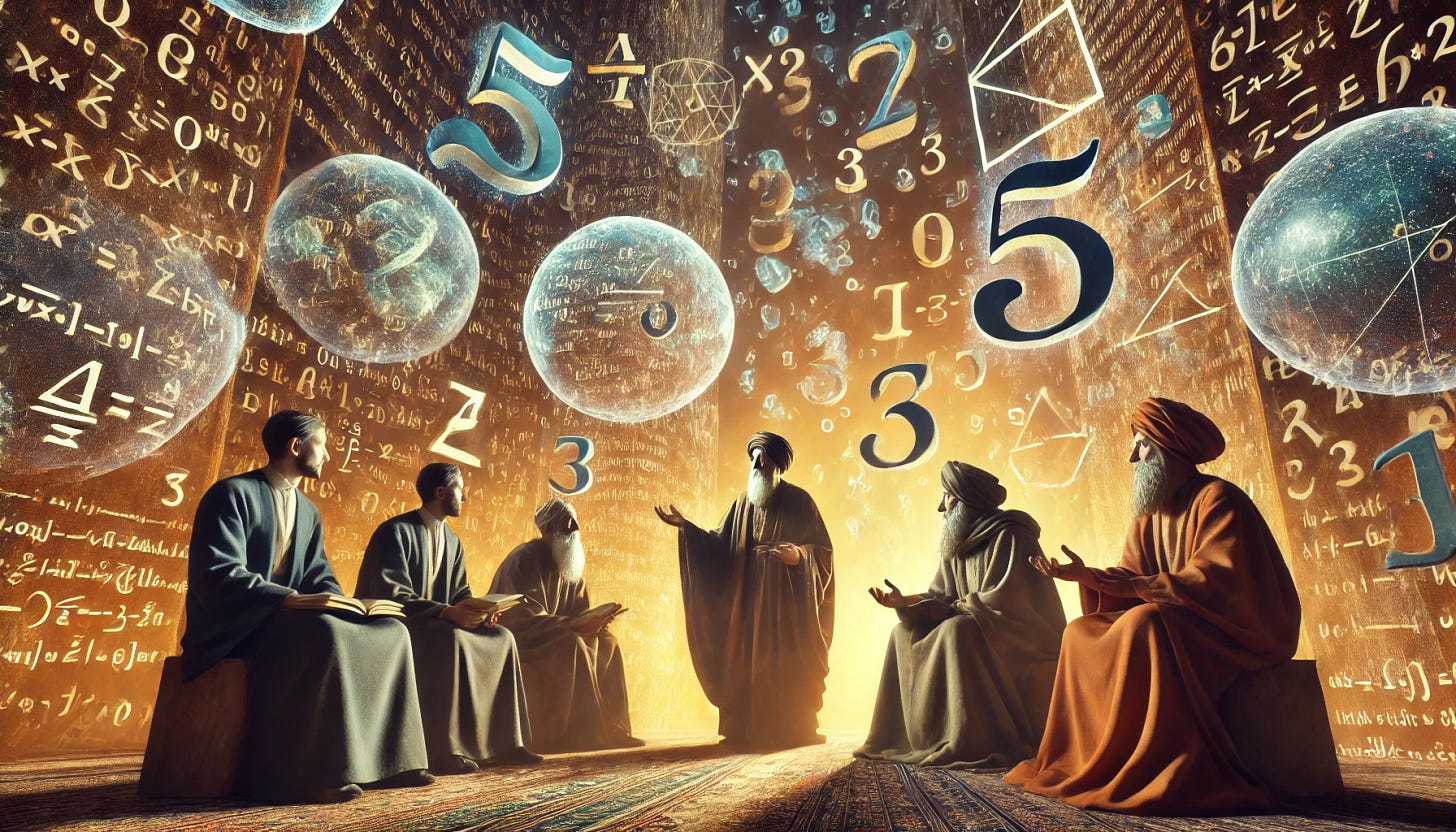The Idea of God: Assuming what may not be true
“God doesn’t exist,” preempts an imaginary atheist reader.
“That may be,” I answer, but the idea of God exists. Indeed, to say ‘God doesn’t exist,’ you have to use the idea of God.”
“Good point,” said another reader. “But God and the idea of God are not the same, are they?”
“Depends on what you mean,” I answer.
Assume anything you want
Let’s assume that God exists.
“God doesn’t exist. How can I assume God exists when God doesn’t exist?” Asked an atheist reader.
“Oooh, I can answer that,” said Ibn al-Haytham. Ibn al-Haytham was a medieval mathematician, astronomer, and physicist of the Islamic Golden Age. He is credited with being the first to use proof by contradiction, a powerful tool for mathematical and scientific reasoning. He is also the first medieval figure to contribute to this blog1.
“Go ahead,” I said.
“The idea of proof by contradiction is simple,” Ibn continued. “You start by assuming that something that you believe is false is true. For example, consider proving that there is no largest prime number.”
“What’s a prime number?” Asked a reader.
“It’s a number that can only be divided evenly (without a remainder) by itself and one. Some prime numbers are 3, 5, 7, 11,13, and 43. But 9 and 15 are not prime because they can be divided by 3 with no remainder.”
“OK, I get prime numbers,” said a reader. “How can you prove there’s no largest prime?”
“Easy,” says Ibn. “You start by assuming there is a largest prime.”
“But you’re trying to prove there is no largest prime, aren’t you?”
“Yes, said Ibn. “But in this proof we start by assuming that there is a largest prime. You’ll see how this works.”
“OK.”
”Now imagine that you multiply all the prime numbers up to and including the largest prime. Then you add one to the result.”
“OK.”
“You’ve created a number that can’t be evenly divided by any of the prime numbers. up to and including the largest prime. It will always leave a remainder of 1.”
“Very clever! So now that number is the largest prime!” Said a reader.
“Not quite,” said Ibn. “We’ve just constructed a number that is larger than the largest prime and can’t be divided by any prime less than the largest prime. We haven’t proved that it is a prime number.”
“Oh.”
“There are two possibilities: either that number is a prime number larger than the ‘largest prime,’ or there is some other prime number that is larger the 'largest prime’ that divides into it evenly.
“So, one way to prove that there is no largest prime is by assuming that a largest prime exists, and showing it leads to a contradiction. There are lots of other interesting mathematical results that can be proved by first assuming that what is false is true.
“Cool!” said an atheist reader. “So. the way to prove the way there is no God, is to assume that God exists?”
“Not quite,” says Ibn. “If there is a God (and I’m not saying there is) you can always assume that what is true is true. I’m saying that you can often discover knowledge by assuming that what’s false is true.”
“So, said the atheist reader,” if I assume God exists then I can prove that it leads to a contradiction and God doesn't exist.”
Possibly, said Kurt Godel2 But maybe you can’t prove it or disprove it.
Maybe later you can disprove it.
Technically, he was an idea of a figure based (very loosely) on Ibn al-Haytham.
Without the umlaut, "Godel" is "God + El," essentially “God-God.” Somewhere along the way, an overzealous German typesetter decided that "Godel" needed more sophistication—hence the umlaut. Little did they know in celestial legalese, the umlaut signifies divine footnotes, meaning Gödel’s true status is "See Appendix A: Incompleteness of Omnipotence.”



